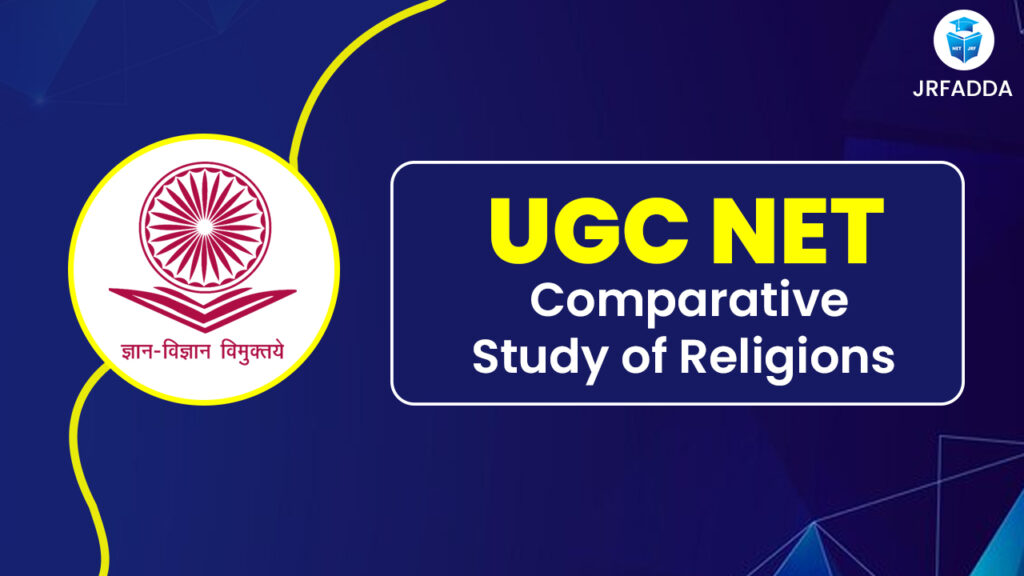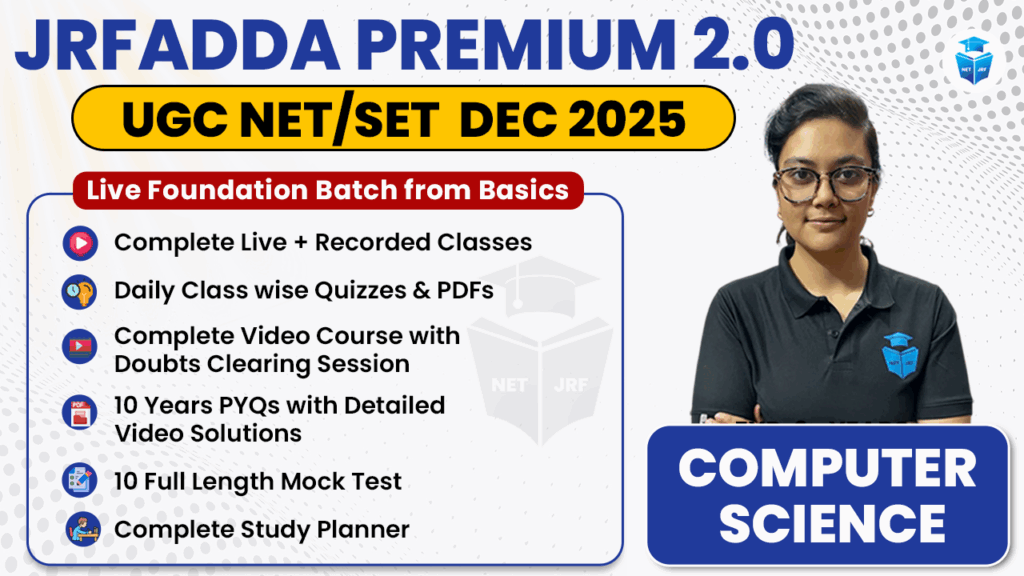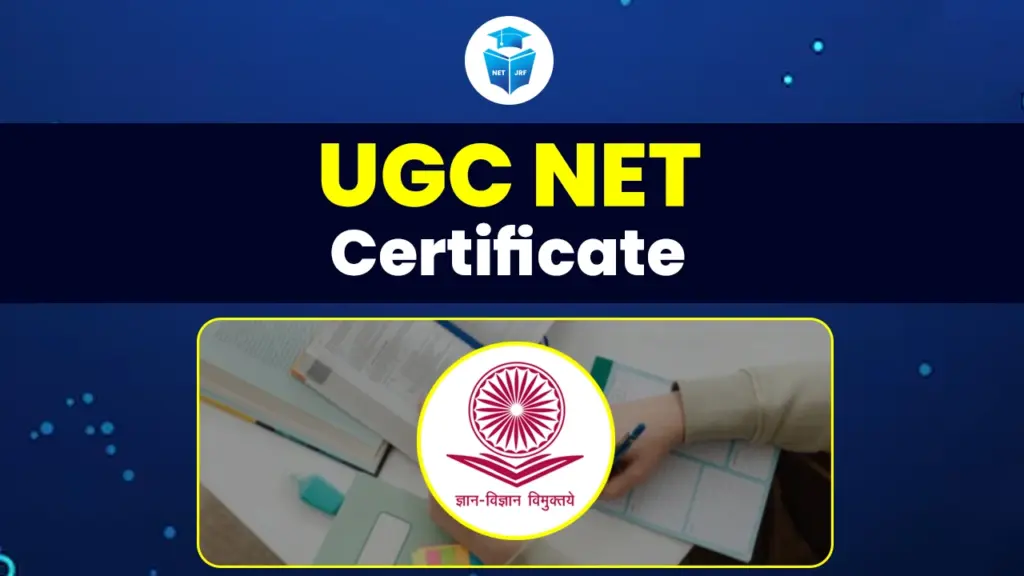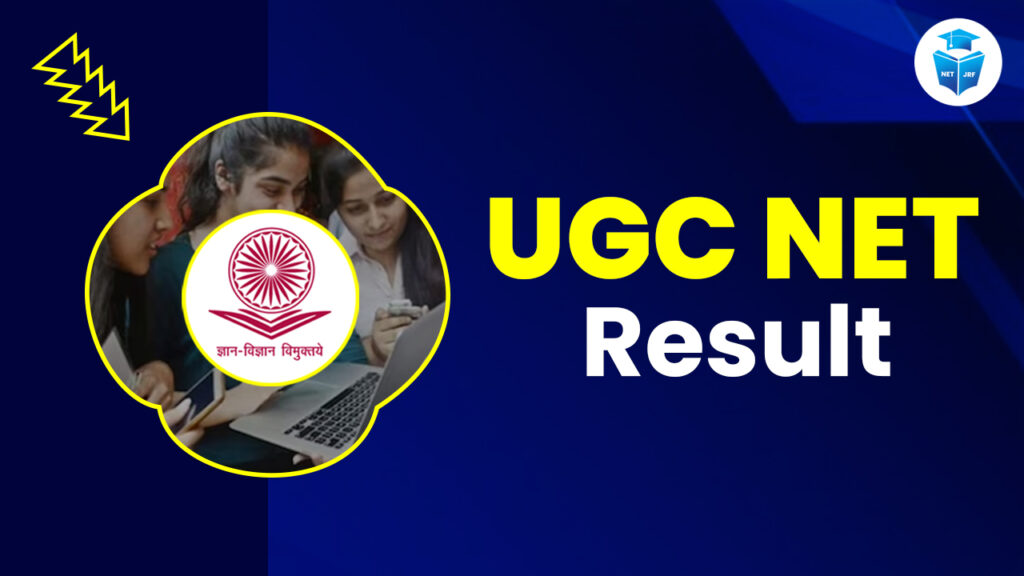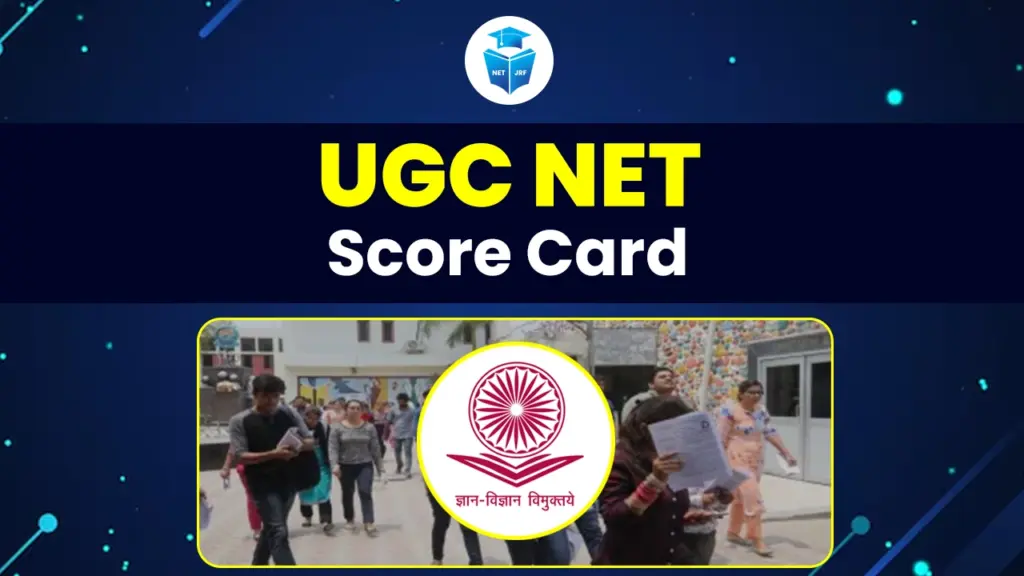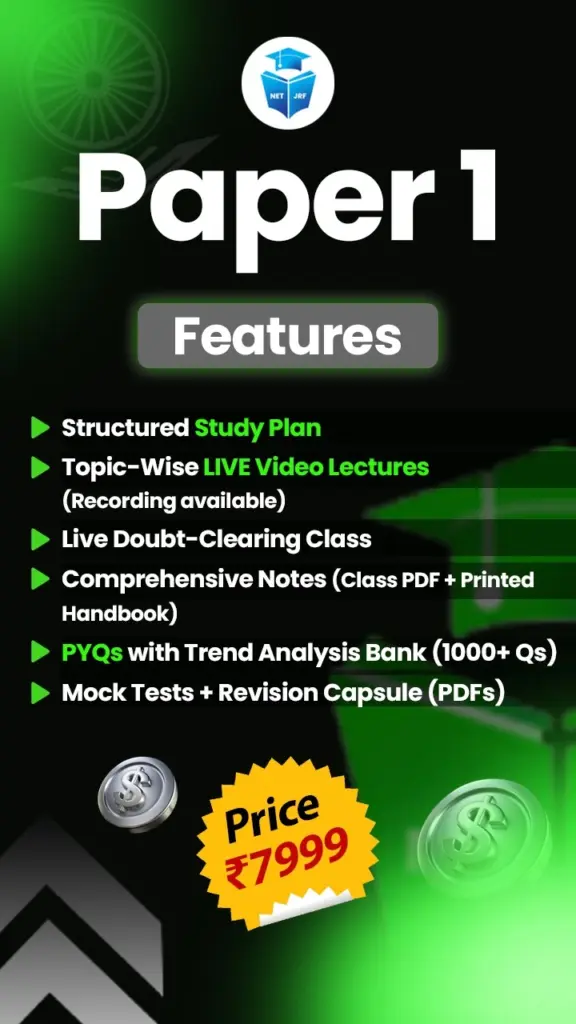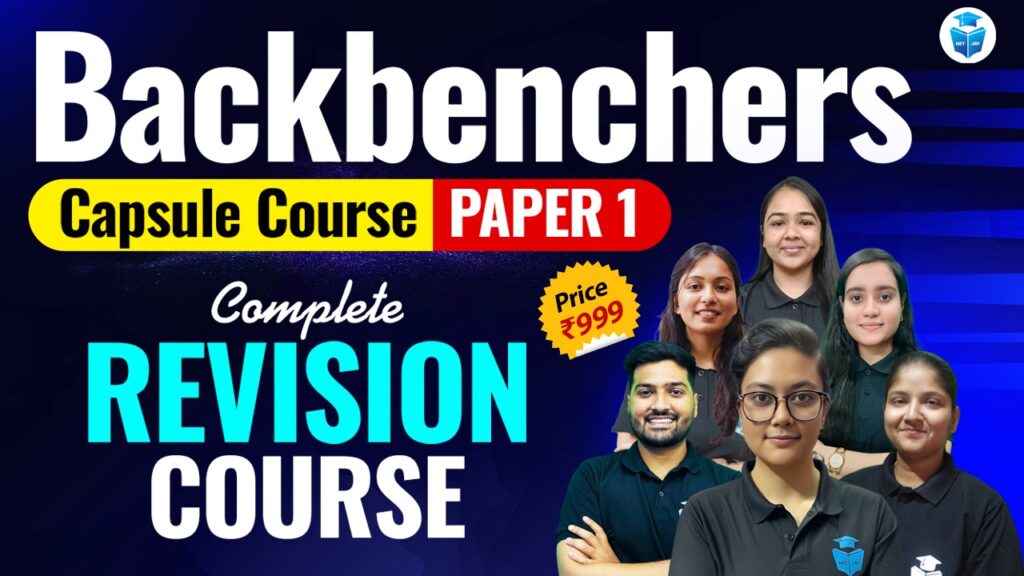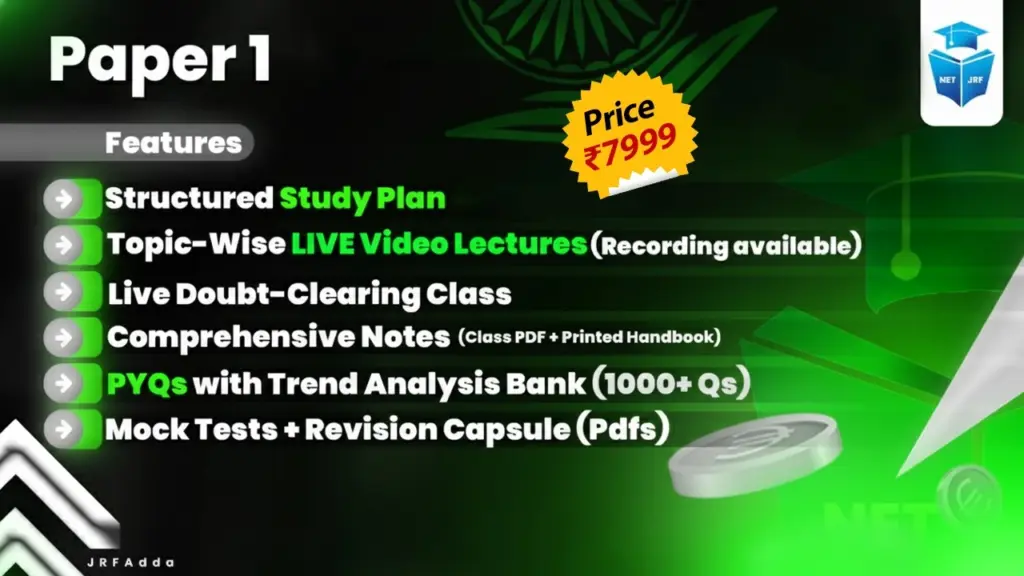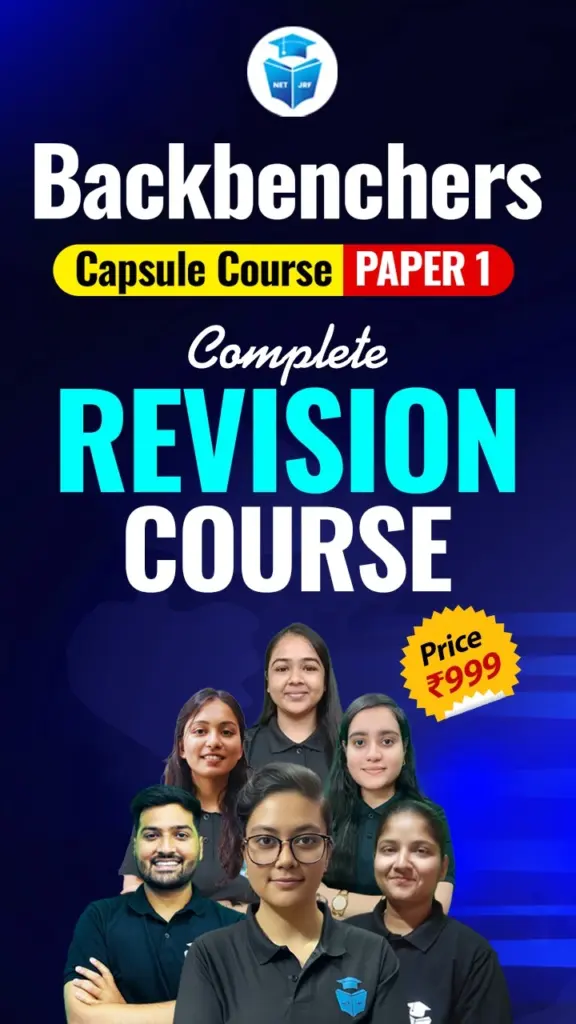UGC NET Comparative Study of Religions 2026 is a national-level exam conducted by the National Testing Agency (NTA) to evaluate candidates aspiring for careers in academics and research focused on world religions. It is specifically designed to test in-depth knowledge of religious philosophies, historical traditions, and interfaith discourse. Candidates qualifying this exam become eligible for Assistant Professor positions and Junior Research Fellowship (JRF) in Indian universities and research institutes. The exam has officially concluded for December session of 2025 in 3 January 2026 in shift 2.
Also Read: UGC NET Exam Analysis 2025
What is UGC NET Comparative Study of Religions?
UGC NET in Comparative Study of Religions evaluates a candidate’s depth of knowledge in diverse religious traditions including Hinduism, Buddhism, Christianity, Islam, Sikhism, Jainism, Judaism, and indigenous faiths. It encourages cross-religious analysis, theological reflection, ethical understanding, and historical insights.
This subject is ideal for students of theology, philosophy, anthropology, sociology, and global studies.
Also Read: UGC NET Exam 2026
UGC NET Comparative Study of Religions 2025 Exam Analysis (3, Jan 2026)
The UGC NET Comparative Study of Religions 2025 exam, held on 3 January 2026, Shift 2,
The Paper I (General Paper on Teaching & Research Aptitude) maintained a moderate overall difficulty level, striking a balanced mix between conceptual understanding and application-based reasoning. Logical Reasoning proved most challenging (8-10 questions on syllogisms, fallacies, square of opposition), while ICT, Teaching Aptitude, and Communication remained easy-moderate and scoring sections. Research Aptitude and Data Interpretation demanded conceptual clarity but stayed predictable, with DI focusing on ratio/percentage calculations.
Also Read: UGC NET Paper 1 Exam Analysis Dec 2025
Paper II (Comparative Study of Religions) was of moderate difficulty, testing both factual and conceptual knowledge. It covered scriptures and philosophies from major religions, including Hinduism, Buddhism, Jainism, Islam, Christianity, and Sikhism. There was emphasis on comparative themes such as salvation, ethics, mysticism, rituals, interreligious dialogue, and modern relevance. The paper included assertion-reason questions and case-based analysis, requiring critical thinking and thematic clarity.
Objectives of UGC NET Comparative Study of Religions
- To test postgraduate-level understanding of multiple religious traditions and their philosophies.
- To promote interdisciplinary academic research in theology, spirituality, and religious dialogue.
- To determine eligibility for Assistant Professor roles in departments of Religious Studies and Philosophy.
- To provide funding through Junior Research Fellowships (JRF) for advanced studies in religion and ethics.
- To foster mutual understanding, tolerance, and peace through comparative learning of faiths.
UGC NET Comparative Study of Religions 2025 Key Highlights
| Feature | Details |
| Exam Name | UGC NET Comparative Study of Religions 2025 |
| Conducting Authority | National Testing Agency (NTA) |
| Exam Frequency | Biannual (June and December) |
| Mode of Exam | Computer-Based Test (CBT) |
| Papers | Paper I (General), Paper II (Subject-Specific) |
| Total Questions | 150 |
| Maximum Marks | 300 |
| Duration | 3 Hours (Combined Session) |
| Marking Scheme | +2 per correct answer, no negative marking |
| Official Website | ugcnet.nta.nic.in |
Also Read: UGC NET Result 2025
UGC NET Comparative Study of Religions Eligibility Criteria 2026
Educational Qualification:
Candidates must hold a Master’s degree in Comparative Religion, Philosophy of Religion, Theology, Religious Studies, or related disciplines. Final-year postgraduates can also apply.
Minimum Marks:
- General / EWS / OBC-NCL / Third Gender: 55%
- SC / ST / PwD / Transgender: 50%
Age Limit:
- For JRF: Maximum 30 years
- Relaxation: 3 years for OBC-NCL, 5 years for SC/ST/PwD/Women
- For Assistant Professor: No upper age limit
Also Read: UGC NET Eligibility 2026
UGC NET Comparative Study of Religions Exam Pattern 2026
The exam consists of two papers held in a single session:
Paper I – General Paper (Common for All Subjects)
- Number of Questions: 50
- Marks: 100
- Purpose: Tests general teaching and research aptitude
- Topics: Teaching Aptitude, Research Aptitude, Logical Reasoning, ICT, Higher Education, Environment, etc.
Paper II – Comparative Study of Religions
- Number of Questions: 100
- Marks: 200
- Topics: Detailed subject knowledge based on the syllabus (see below)
- Duration: 3 hours (combined with Paper I)
- Marking: +2 for each correct answer, no negative marking
UGC NET Comparative Study of Religions Syllabus 2026
This syllabus is framed to assess a deep and critical understanding of major world religions, their philosophies, practices, scriptures, and contributions to culture and society.
Paper I (Common Topics):
- Teaching Aptitude
- Research Aptitude
- Communication & Comprehension
- ICT
- Reasoning & Data Interpretation
- People, Development & Environment
- Higher Education System
Also Read: UGC NET Syllabus 2026
Paper II (Subject-Specific Topics):
- Introduction to World Religions: Historical evolution, key beliefs, sacred texts, rituals
- Hinduism: Vedas, Upanishads, Bhagavad Gita, Bhakti, Vedanta, Dharma
- Buddhism: Life of the Buddha, Four Noble Truths, Schools of Buddhism, ethics, meditation
- Jainism: Tirthankaras, Anekantavada, Ahimsa, Karma and Liberation
- Islam: Quran, Hadith, Five Pillars, Sufism, Islamic philosophy
- Christianity: Bible, Trinity, Sacraments, Church history, Liberation Theology
- Sikhism: Guru Granth Sahib, Gurus, Khalsa, values of equality and service
- Judaism: Torah, Covenant, Jewish ethics and philosophy
- Tribal and Indigenous Religions: Animism, totemism, oral traditions
- Comparative Themes: Ethics, salvation, theism vs atheism, mysticism, rituals, gender in religion
- Interreligious Dialogue: Conflict resolution, tolerance, peace initiatives, contemporary relevance
Syllabus PDF Download:
Download the full syllabus for Comparative Study of Religions from the UGC NET official website.
UGC NET Comparative Study of Religions Syllabus 2026 PDF
UGC NET Comparative Study of Religions Previous Year Question Papers
Practicing previous year question papers helps candidates:
- Understand the structure and difficulty level of the exam
- Identify frequently tested topics
- Improve speed and conceptual clarity
| Year | Availability |
| 2025 (December session) | Download (available soon) |
| 2025 (June session) | Download |
| 2024 | Download |
| 2023 | Download |
| 2022 | Download |
| 2021 | Download |
| 2020 | Download |
| 2019 | Download |
Also Read: UGC NET Previous Year Question Papers
Career Scope After UGC NET Comparative Study of Religions
This exam offers a solid foundation for academic and research careers, as well as opportunities in public service, media, and international organizations.
Academic Roles:
- Assistant Professor in Religious Studies, Philosophy, and Intercultural Studies
- Ph.D. programs in Comparative Religion, Theology, Ethics
- Curriculum development and policy research roles in education
Research:
- Fellowships from UGC, ICPR, ICHR, and other research councils
- Interfaith peace studies and conflict resolution research
- International academic collaborations
Government and Policy Sector:
- Roles in Ministry of Culture, Minority Affairs, Interfaith Dialogue units
- Positions in UNESCO, United Nations Peacebuilding divisions
- Consultant on religious policy, ethics, and education
NGOs & Think Tanks:
- Work with NGOs on interfaith harmony, peacebuilding, and education
- Research-based roles in advocacy and cultural preservation organizations
Media and Publishing:
- Editorial and content development roles
- Journalism, documentary scripting, religious translation work
Also Read: UGC NET Preparation Tips 2026
UGC NET Comparative Study of Religions Preparation Tips
- Know the complete syllabus and create a structured preparation plan
- Refer to standard texts from religious studies scholars and scriptures
- Use previous year papers and mock tests for regular practice
- Study interfaith dialogues and compare religious themes to build critical perspectives
- Join study groups or academic forums to exchange ideas and resources
Conclusion
The UGC NET Comparative Study of Religions 2026 serves as a vital academic platform for those passionate about world religions, ethics, and interfaith understanding. With a structured syllabus and an objective exam pattern, the test challenges aspirants to develop analytical depth and comparative perspective. Those preparing for the exam must adopt a strategic approach, combining conceptual clarity with consistent practice. Success in this exam not only opens avenues in academia and research but also contributes meaningfully to fostering harmony and intercultural dialogue in a diverse world.
UGC NET Comparative Study of Religions FAQs
What is UGC NET Comparative Study of Religions about?
It is a subject-based eligibility test that assesses deep academic understanding of world religions and interfaith comparative studies.
What is the eligibility for this UGC NET subject?
You must have a master’s degree in Religious Studies, Philosophy, Theology, or related disciplines with at least 55% marks (50% for reserved categories).
Is this exam suitable for students of philosophy or theology?
Yes, it is ideal for students from philosophy, theology, sociology, anthropology, and related fields who are interested in religious and ethical studies.
How can I download the syllabus PDF?
You can download the detailed syllabus PDF from the official NTA UGC NET website under the “Syllabus” section.
What are the job opportunities after qualifying this UGC NET subject?
Opportunities include university teaching, research fellowships, roles in cultural ministries, think tanks, NGOs, and international interfaith organizations.

